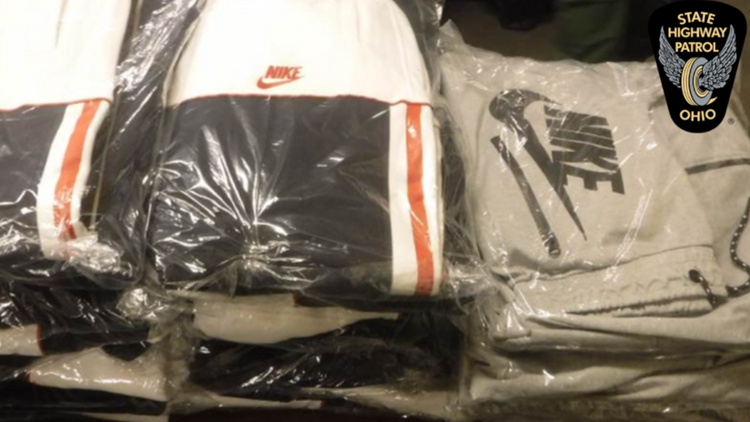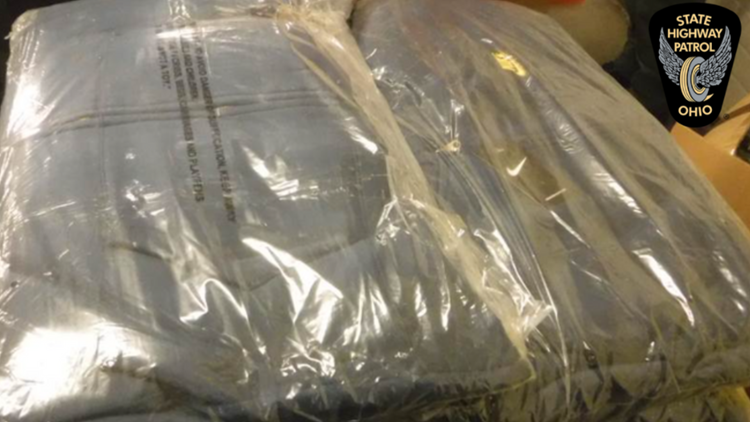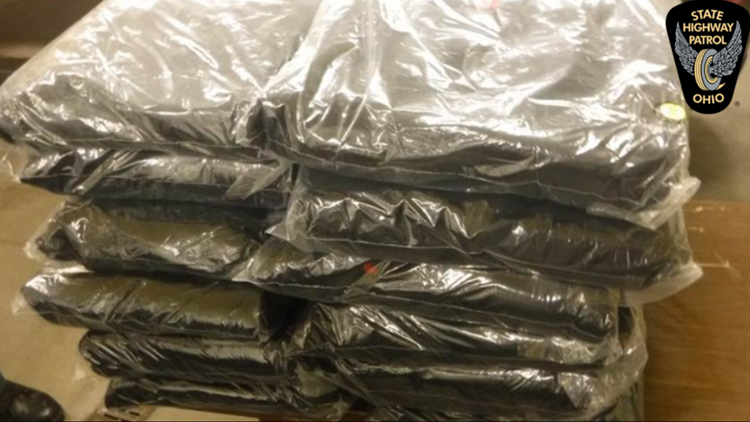COLUMBUS, Ohio — Online shopping increased as many were forced to stay home during peak pandemic orders. With more turning to the internet, instead of stores, purchasing on online marketplaces became the norm.
Instead of feeling and trying on goods, online shoppers put their faith in online platforms to determine if the items are legitimate. But many marketplaces online, have very few regulations.
A proposed bill co-sponsored by State Representative Haraz Ghanbari (R-Perrysburg) is aiming to change that.
“It requires verification of the seller,” said Ghanbari. “If you are a legitimate seller, you are likely not going to have a problem registering your business. You are going to want to provide who you are, your business ID, what address you are operating from. Those are normal day-to-day transactions businesses have to provide anyways. But this will be one step to require that.”
The Ohio Council of Retail Merchants represents more than 7,000 businesses in the state. Alex Boehnke, the Manager of Public Affairs testified in favor of a bill, looking to crackdown on illegal activities on the new online pawnshops.
“It used to be when organized retail crime rings steal products from one of our members' stores and take them to a pawn shop and try to pedal them that way,” said Boehnke. “Some of these online marketplaces have become a more convenient outlet.”
Boehnke said consumers may not even know they are purchasing from illegitimate sellers.
“There are a tremendous amount of counterfeit products that are listed on these websites,” said Boehnke. “To the unsuspecting consumer, they are aware that they are buying something that it is not purported to be.”
Ghanbari tells 10TV the proposed legislation gives law enforcement more resources to investigate if online marketplaces had to vet each seller before allowing their business on a site.
“If you are fraudulent, you are not going to want to provide that information or maybe you are going to set up an account or cancel an account,” said Ghanbari. “This will allow law enforcement officers to observe some of those red flags or criminal indicators.”
But what will this do to the small business or person looking to sell items online? Ghanbari said the bill targets those selling at a certain dollar or transaction amount.
More than a dozen other states have similar legislation proposed. Proponents of this bill in Ohio include Ohio Chemistry Technology Council, The Game Manufacturers Association, Home Depot, Retail Industry Leaders Association, Meijer, Ohio Grocers Association, Ohio Manufacturers' Association, The Toy Association, Walgreens, and Walmart.
“Some have made the argument that this will impact the bottom lines of the online marketplaces. And I will say initially it probably will. If you are not having the transactions that you normally have, you may not be bringing in the revenue you normally bring in,” said Ghanbari. “But I can tell you if someone feels confident that when they go to an Amazon, or an Etsy, or a Facebook Marketplace or some of these online retailers, they understand these are all the steps these businesses are taking to ensure I am getting the item that I purchased, that it’s not stolen, it has not been repurposed. That initial lost revenue will likely come back multiple times over.”
Ghanbari said he welcomes input from major internet marketplaces to be part of the solution.
“We are not trying to hurt any legitimate business and there is nothing in the legislation that impact a legitimate business,” said Boehnke. “We have a lot of retail companies based here. We have a large population so we think Ohio can be a leader on this issue.”
An example of counterfeit items happened in northern Ohio when the Ohio State Highway Patrol searched a vehicle and found dozens of Nike clothing items.
Several counterfeit clothing items confiscated during traffic stop in northern Ohio
Below is a statement from OSHP on the counterfeit clothes:
These photos are from a stop that occurred on I-80 (Ohio Turnpike) in Wood County. The vehicle was stopped for a following too close violation. A consent search of the vehicle revealed several counterfeit Nike clothing items. The owner of the items entered a plea of guilty to Attempted Trademark Counterfeiting (F-5). There were a total of 73 counterfeit items recovered. Once the case was closed, all items were donated to the Open Arms Domestic Violence Shelter in Findlay, Ohio.









